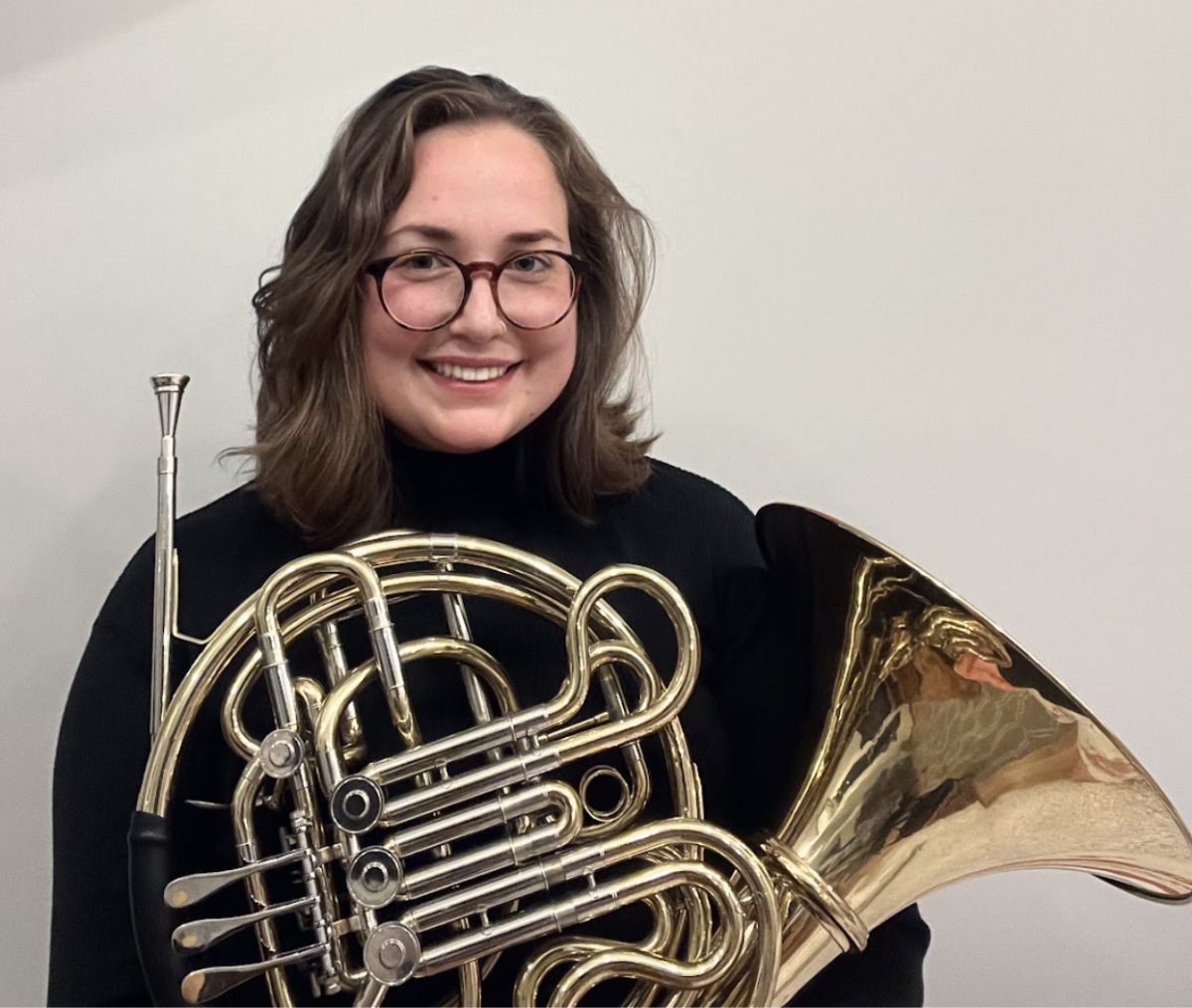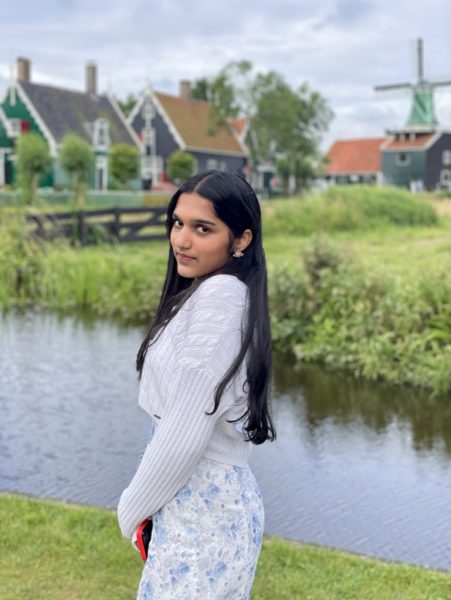As Wilton High School comes close to the end of its first quarter, an excellent way to round out the first two months of school would be to take a closer look at our WHS staff! As a nonbinary teacher, MJ Alexander offers a unique perspective and has graciously allowed us to interview them. They are eager to share the spotlight as our new Assistant Band Director.
What inspired you to pursue a career in music education?
“I started music because my oldest sibling started trumpet before me and immediately they were like- a prodigy, and so then in fifth grade, I had to choose an instrument, and they told me to choose French horn, and I didn’t know it was the hardest instrument you could choose. That kind of forced me to dedicate more time to it. Joining the marching band in high school is what made me really passionate about music. I feel like I’ve always been really good at explaining things, and I have a passion for helping people, so it felt natural to go into teaching.”
How do you think music education has changed and evolved over the years, and what changes would you like to see or contribute to within the field?
“I think that at Wilton, Mr. Williams has done an amazing job at creating literate musicians. When I was in high school, the trend was more to prepare students for competitions. We would rehearse the same pieces over and over again so we would perform them perfectly like robots, but then when we left school we weren’t literate. In this program, Mr. Williams really focuses on sight reading and making sure that students understand all the aspects of music making, not just notes and rhythms, and being exposed to a lot of new music. I also see an effort to be more inclusive with which composers we are giving our platform to, and I still think we have a long way to go with that. The Wilton Music Department has shown dedication to representation and I want to help forward that effort. I really hope to help move us down that path and empower more female composers or composers of color. The music world has kind of shut them out in the past and I want to bring their voices back and empower them the way they should be.”
What role do you think music and music education play in the lives of the students?
“I think music making is about so much more than the actual music. It’s a unique subject because it relies so much on teamwork and collaboration with the people around you, specifically in ensemble classes. You have to trust the people around you to do their part as well as allow you to perform in front of them because that’s vulnerable, and I think it’s a really valuable community-building experience. Learning collaboration, and learning to support your peers is really big. So much problem-solving goes into music as well, and it’s like learning another language and constantly learning different ways to approach problems. I think that skill can transfer to all aspects of your life.”
How did music play a role in your life?
“The community is what really drew me into music, you can find like-minded people. When I was growing up, what had the most impact on me was just being able to build community and make lifelong friends. My closest friends are from marching band in college, and we still talk every single day.”
As a nonbinary teacher, have you had any nonbinary people to look up to and guide in your teaching journey, or have you had to rely on yourself and your ambition to keep you motivated and inspired? How has that journey been easy or difficult?
“I didn’t have any nonbinary adults in my life until I started working at a summer camp for LGBT teenagers, and that’s when I met counselors who were around my age or a little older who were non-binary. That’s kind of what inspired me to come out. When I started teaching and student teaching, I noticed that teachers were asking students their pronouns, and I realized that no one ever asked me. The reason for that I think is because we’ve been forcing nonbinary people out of these professional roles, and we are making it harder for people to come out for fear of ridicule and even losing their jobs. When I started teaching I was a little bit nervous to work with kids because I was scared of backlash on the parent’s behalf, who don’t understand what that means, and who have those incorrect negative viewpoints that trans people are a threat. But what kept me going was the hope that I could help queer kids by being a mentor for them, with my presence as a queer person and not hiding who I am.”
Who’s your favorite musician/artist and why?
“Chapell Roan is my favorite artist right now. I think it’s so cool to see an openly queer musician being played on the radio, especially her albums that are about her journey as a queer person. I think it’s so cool that she is on the mainstream and that she is doing her own thing.”


